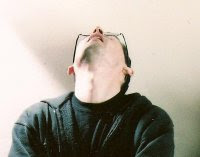 An Alan J. Pakula double feature at the New Beverly, especially nice for watching master cinematographer and 'prince of darkness' Gordon Willis's widescreen compositions and moody lighting on the big screen.
An Alan J. Pakula double feature at the New Beverly, especially nice for watching master cinematographer and 'prince of darkness' Gordon Willis's widescreen compositions and moody lighting on the big screen. I had seen The Parallax View before back in college and written a paper about it, but seeing it now confirmed one of my initial impressions: it's kind of a mess. Parallax is a fully paranoid, post-'60s thriller produced by and starring Warren Beatty as a small-time reporter who stumbles into investigating a shadowy corporation that may or may not be involved with a massive conspiracy to assassinate political leaders. In this world, the paranoia is bone-deep and the conspiracy has tendrils at every level of society, from the highest levels of government down to a local small-town sheriff. Even the politician targeted at the film's climax is a pitch-black joke, a Presidential candidate more interested in telling golf jokes and flirting with campaign aides than taking on the world's problems - he's no Bobby Kennedy, and he's barely even a George Wallace.
There's nothing wrong with the craft of the movie, Willis's cinematography, or Beatty's smart, angry performance, but the movie awkwardly tries to straddle a dry '70s naturalism with a more moody, expressionistic sense of visual dread and darkness - sort of as if Robert Altman had tried to remake a Fritz Lang film. And it could have worked, except that the screenplay has a rambling, uneven quality that never really lets us get too close to any characters or any emotions aside from dislocation. I'm a fan of conspiracy thrillers, but this one feels too much like an exercise. All that said, within the flawed package there are a number of great individual sequences, including a dazzling montage at the movie's midpoint that dissects the American dream and illustrates the spiritual malaise of America in the post-Watergate era. Given that the movie was made right at the height of that period, it's not a big surprise that the movie should give vent to the most dismal, pessimistic attitudes of the time and not have much room beyond that for characterization.
 Pakula's Klute, meanwhile, is a very different animal, a more conventional romance/thriller that could have been made in the 1940s with Bogart and Bacall, except back then the movie would have been more interested in the hard-boiled detective's sense of moral outrage and honor instead of the personal emotional crisis of a high-class prostitute, which is what we get here.
Pakula's Klute, meanwhile, is a very different animal, a more conventional romance/thriller that could have been made in the 1940s with Bogart and Bacall, except back then the movie would have been more interested in the hard-boiled detective's sense of moral outrage and honor instead of the personal emotional crisis of a high-class prostitute, which is what we get here. Klute's set-up is classical: Jane Fonda's jaded call girl has to work with Donald Sutherland's uptight detective to solve a case. From that simple starting point Pakula takes his audience into a realm of subtle yet pervasive visual menace and modern psychological insight. Fonda's Bree Daniels is a sometime-actress and model who's managed to build a cozy little nest of denial in her secret life. Suddenly she's forced to come face-to-face with the seedy side of the world she's fallen into, and to open up to interactions with a man she can't seduce and manipulate, and who she finds herself falling for. That makes the movie sound like it has a conservative slant (detective gets hooker to wise up) but this is balanced by the movie's lack of moralizing about Bree's role as a prostitute, that she serves her clients' emotional needs more than she does their physical ones; and the movie's general sense of sympathy towards the have-nots, as highlighted in a scene where a pair of frantic heroine addicts are denied their fix by the presence of Sutherland, obviously a cop, in their apartment. A lesser movie would have smirked at these junkies, but Pakula chooses to simply watch and silently commiserate with the couple in their moment of woe. Add in Fonda's Oscar-winning work and Sutherland's understated yet strong supporting role as John Klute, plus a world-class creep performance from the movie's bad guy, and you have a modern classic, which I'm glad to have finally seen.


4 comments:
Dammit another great double feature I missed. Jeff you need to write these reviews a week in the future.
I thought your comments on The Parallax View and Klute were right on the money. The first does not really hold up, while the second is a masterpiece. It's easy to see how big an influence Pakula had on filmmakers like David Fincher. It seems few other directors captured disorientation or dread better.
I think Parallax is amazing and holds up just fine. Klute is better, but that's taking nothing away from Parallax.
I'm with Actionman on this one. I love Parallax in all it's messy widescreen glory.
I don't think Parallax is a bad movie, but I'm also pretty sure it's the weak sister of Pakula's '70s thriller trilogy. It has the widescreen glory but it lacks the characterization and complexity of Klute or ATP'sM.
Post a Comment